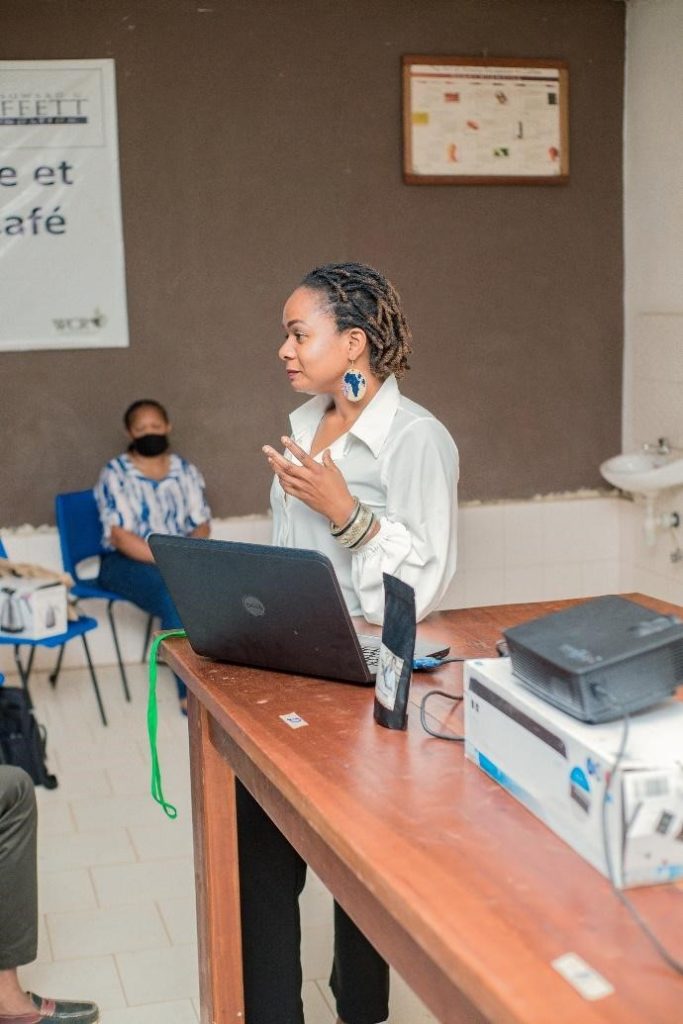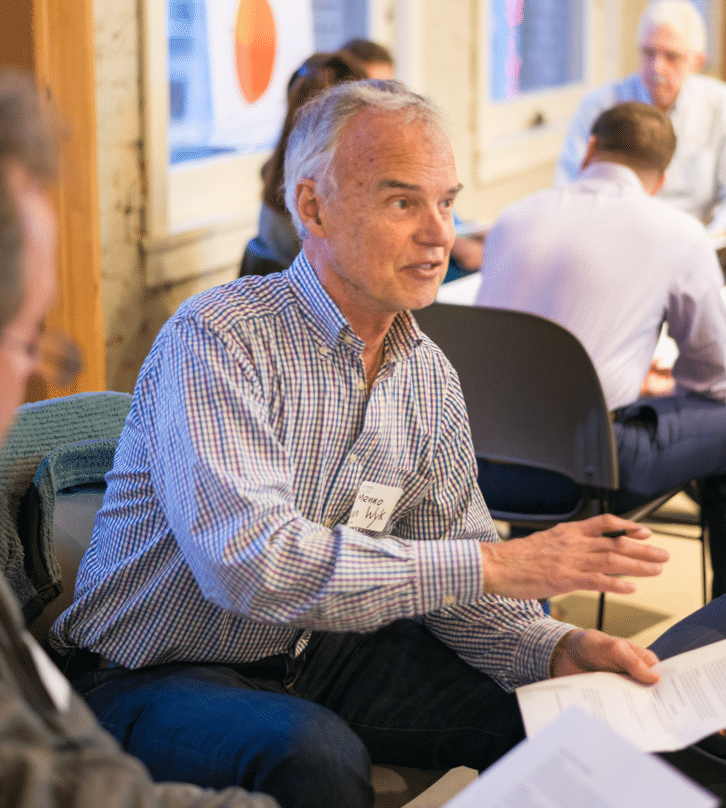Aminatha Ngabo’s passion is coffee. Her challenge is immense.
A small coffee farmer and government advisor, Ngabo is busy trying to help thousands of women coffee farmers in the eastern Democratic Republic of the Congo build their region into a world-class center for fine coffee bean cultivation on par with Ethiopia or Colombia. Growing their delicious coffee is the easy part, she said; marketing and selling their brand, Deluxe Coffee Kivu, has been a far harder uphill climb. Ngabo admits that it’s proven a struggle to make a name for themselves even in Bukavu, South Kivu, her home, yet she is undeterred and confident that her coffee cooperative is almost there. “I have not yet any success with Deluxe Coffee Kivu in my area,” she told Grow Further, “because we are in the beginning to boost step-by-step the people’s consumption, and I hope Deluxe Kivu Coffee will have success soon.”
“I became interested in tasting coffee, so I launched myself into it and got a passion for it.”
Despite an emergency hitting eastern DRC, where thousands were recently forced to flee a volcanic eruption in neighboring Goma, Ngabo kindly took time to tell Grow Further her story, and what she thinks South Kivu’s coffee farmers need most to grow their brand and eventually export their product, lifting livelihoods in the process. Her answer? Financing, innovation, and broader regional and international recognition. A modern roaster wouldn’t hurt either, she added.
A native of South Kivu, DRC, Ngabo said she doesn\’t have any family background in farming. Rather, she came to it via college, acquiring a taste for coffee along the way. “I got a job in a coffee-based enterprise,” she recalled. “After some time, I became interested in tasting coffee, so I launched myself into it and got a passion for it.” Ngabo attended the Université Évangélique en Afrique, or UEA, in Bukavu. There, she studied agronomy, and the UEA agronomy program just happened to offer a course in coffee, so she enrolled. She graduated with her diploma in 2015.
“We have a large coffee industry in DR Congo. In South Kivu, it’s not very big.”
DRC’s coffee industry is unknown to much of the world, but the national government there is determined to change this, and Ngabo—with her education, experience with her own coffee farm, and passion for the roasted beans—was hired to help. Two years after graduation, she took a position as an agronomist at ONAPAC, the national office for agricultural products charged with regulating, advising, and supporting the nation’s coffee sector. The industry was only getting its footing in South Kivu when Ngabo began her journey in the world of java. “In DR Congo we have a good climate for two species of coffee: robusta and arabica,” she explained. “We have a large coffee industry in DR Congo. In South Kivu, it’s not very big.” She said she knows first-hand the struggles Congolese coffee farmers face since she’s one herself. “I have a smallholder farm,” she stressed. “I sell this coffee for consumption to the Kivu people.”

So far, so good. Today, Ngabo tells us that she is pleased with the quality of the organic coffee grown under the Deluxe Coffee Kivu brand. A cup of Deluxe Coffee Kivu can stand up to any from Colombia, Ethiopia, or even Sumatra, she insists. But for now, the brand is stuck building its image and reputation in the rest of DRC and central Africa. “My plan is to produce for export to other countries also,” Ngabo said.
Aside from money to help the cooperative produce more and better coffee, what could IFCCA use most? Ngabo was quick with an answer. “Deluxe Coffee Kivu needs a big modern roaster machine,” she told Grow Further, along with “a packaging and sealing machine.” She’s of course open to other innovative ideas that may help deliver Deluxe Coffee Kivu to a Starbucks or grocery store near you, boosting the incomes of Kivu’s smallholder coffee farmers in the process.
Like this new style of article focusing on a person rather than a topic? Let us know at peter@growfurther.org or nate@growfurther.org .
— Grow Further
Photo credit: Aminatha Ngabo



